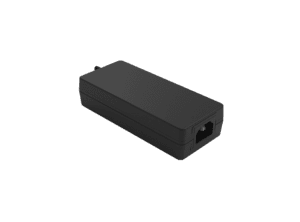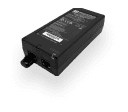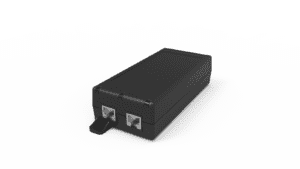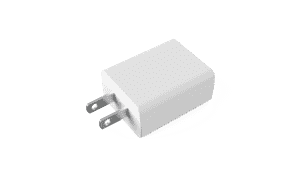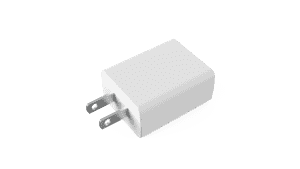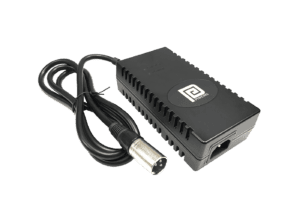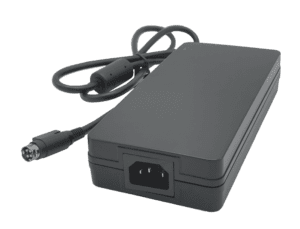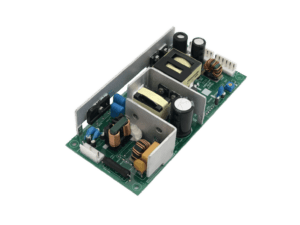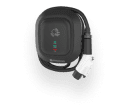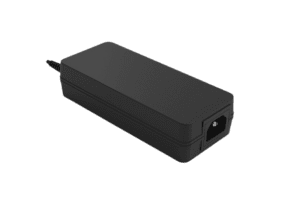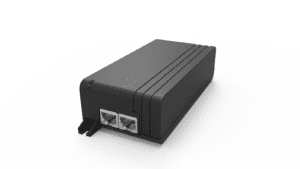BLOG
Multiport PoE Injector vs. Single PoE Injector: Choosing the Right Device for Your Network
Table of contents
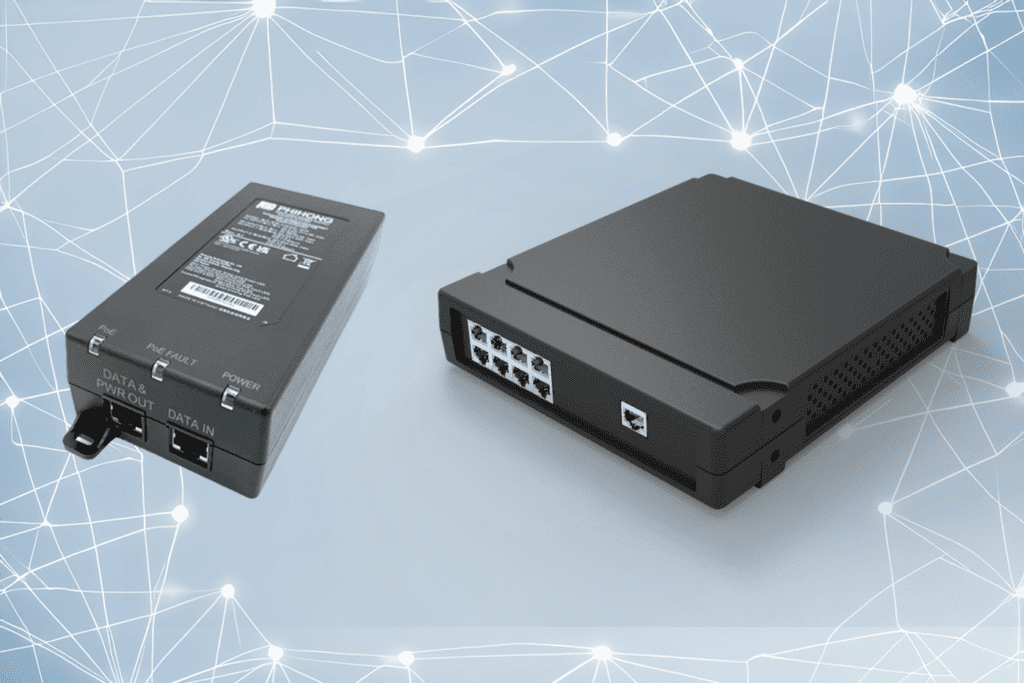
In the world of network infrastructure, choosing the right Power over Ethernet (PoE) devices is critical to ensuring efficient, reliable, and scalable operations. Among the various PoE devices available, PoE injectors play a crucial role in delivering power and data to network devices via a single Ethernet cable. However, deciding between a single-port PoE injector and a multiport PoE injector can be challenging, especially when considering factors such as network size, scalability, and cost. This article explores the differences between these two types of injectors and offers guidance on choosing the optimal device for your network.
Understanding PoE Injectors: The Basics
Before diving into the comparison, it’s important to understand what PoE injectors are and why they are essential in modern network infrastructures. A PoE injector, also known as a midspan, is a device that adds power to an Ethernet cable, enabling non-PoE network equipment to receive power without the need for separate power sources. This capability simplifies installations, reduces cabling complexity, and enhances the flexibility of network designs.
PoE injectors are particularly valuable in scenarios where the existing network switches do not support PoE or when upgrading the entire network infrastructure is not feasible. By integrating power delivery into the Ethernet cables, PoE injectors allow devices like IP cameras, wireless access points, and VoIP phones to function effectively with minimal installation effort.
What is a Single-Port PoE Injector?
A single PoE-port injector powers one network device over an Ethernet cable, offering a simple solution ideal for small-scale deployments or adding PoE capabilities to an individual device within an existing network. These injectors are commonly used when only one or two devices need power, making them a cost-effective and easy-to-implement option.
Single-port PoE injectors are typically compact and integrate easily into legacy network setups that lack PoE capabilities. They connect to the network switch on one end and the powered device (PD) on the other, injecting power into the Ethernet line. This setup is often used in home offices, small businesses, or specific applications within larger networks where only a few devices require PoE.
Key Features and Benefits
- Simplicity: Easy to install and configure, making them ideal for small deployments.
- Cost-Effective: Lower upfront cost compared to multiport injectors, especially when only a few devices need to be powered.
- Flexibility: Can be added to existing networks without the need for significant infrastructure changes.
What is a Multiport PoE Injector?
A multiport PoE injector, as the name suggests, is a device capable of powering multiple network devices simultaneously through a single unit. Multiport injectors typically come in configurations ranging from 2 to 24 ports or more, allowing for greater scalability and efficiency in powering multiple devices within a network.
Multiport PoE injectors are particularly useful in medium to large-scale deployments, where multiple devices such as IP cameras, access points, and VoIP phones need to be powered from a central location. These injectors simplify network management by consolidating power delivery into a single device, reducing the number of individual injectors needed and minimizing cable clutter.
Key Features and Benefits
- Scalability: Supports multiple devices, making them ideal for larger network deployments.
- Centralized Power Management: Simplifies the management and monitoring of power delivery to all connected devices.
- Efficiency: Reduces the number of individual injectors needed, leading to a cleaner and more organized network setup.
Key Differences Between Single-Port and Multiport PoE Injectors
While both single-port and multiport PoE injectors serve the same basic function—providing power to network devices via Ethernet—they differ in several key ways. Understanding these differences can help you choose the right device for your specific network needs.
Scalability
One of the most significant differences between single-port and multiport PoE injectors is scalability. Single-port PoE injectors are limited to powering one device at a time, making them suitable for small-scale applications. In contrast, multiport PoE injectors can power multiple devices simultaneously, offering a scalable solution for larger networks.
Cost
The cost of deploying PoE injectors varies depending on the number of devices that need to be powered. While single-port PoE injectors are less expensive upfront, they may become costlier in large deployments where multiple injectors are needed. Multiport injectors, on the other hand, offer a more cost-effective solution in scenarios where many devices require PoE, as they consolidate power delivery into a single unit.
Network Management
Multiport PoE injectors provide centralized power management, allowing for easier monitoring and control of power distribution across the network. This can be particularly advantageous in complex network environments where managing multiple single-port injectors would be cumbersome.
Installation and Setup
Single-port PoE injectors are generally easier to install and set up, especially in smaller deployments. They can be quickly integrated into existing networks without the need for extensive reconfiguration. Multiport injectors, while more complex, offer a cleaner and more organized setup in larger networks, reducing cable clutter and simplifying maintenance.
Best Practices
- Evaluate Network Size: Choose a single-port injector for small networks or isolated devices and a multiport injector for larger, more complex deployments.
- Consider Long-Term Costs: While single-port injectors may be cheaper initially, multiport injectors could be more cost-effective in larger setups.
- Optimize Network Management: Use multiport injectors to centralize and simplify power management in larger networks.
When to Use a Single-port PoE Injector
Single-port PoE injectors are best suited for scenarios where only one or two devices require PoE. This could include small offices, home networks, or specific applications within a larger network where only a few devices need to be powered.
For example, if you’re setting up a home office with a single VoIP phone or installing a single IP camera at a remote location, a single-port PoE injector provides a straightforward, cost-effective solution. It allows you to add PoE capabilities without overhauling your entire network, making it an excellent choice for small-scale applications.
Advantages of Multiport PoE Injectors
Multiport PoE injectors offer several advantages, particularly in larger network environments. Their ability to power multiple devices from a single unit makes them a scalable, efficient solution for growing networks.
In environments such as corporate offices, schools, or industrial facilities, where numerous devices need to be powered, a multiport injector streamlines the setup. It reduces the need for multiple individual injectors, minimizes cable clutter, and simplifies power management. Additionally, multiport injectors often come with features that allow for better control and monitoring of power distribution, enhancing the overall efficiency of the network.
Scalability Considerations in PoE Deployment
When planning a PoE deployment, scalability is a crucial factor to consider. Networks are dynamic, with devices frequently being added or upgraded. Choosing the right PoE injector can make a significant difference in how easily your network can adapt to these changes.
Multiport injectors provide a scalable solution that can grow with your network. They allow you to add more devices without the need for additional injectors, making them a future-proof choice for expanding networks. On the other hand, single-port injectors, while less scalable, offer a more targeted solution for smaller, static networks where expansion is not anticipated.
Cost-Effectiveness: Evaluating Total Cost of Ownership
When comparing single-port and multiport PoE injectors, it’s important to consider the total cost of ownership (TCO). While single-port injectors may have a lower initial cost, the expenses can add up quickly in larger networks where multiple devices need to be powered.
Multiport injectors, though more expensive upfront, often prove to be more cost-effective in the long run. They reduce the need for multiple devices, simplify network management, and can lower maintenance costs.
Phihong’s Solutions for PoE Injectors
Phihong offers an extensive range of PoE injectors, featuring over 60 different types of products and peripherals, including single-port and multiport options, to cater to the diverse needs of OEMs, manufacturers, and industry partners. Each product serves a unique role across various applications, ensuring that there is a solution tailored to meet specific network requirements. Phihong’s injectors are recognized for their reliability, efficiency, and scalability, making them an ideal choice for a wide array of network environments.
Phihong’s current product line includes Power Over Ethernet (PoE) Injectors, PoE Splitters, Media Converters, and PoE-to-USB-C devices, all fully compliant with IEEE 802.3af (PoE), IEEE 802.3at (PoE+), and IEEE 802.3bt (PoE++) standards. These injectors support cutting-edge technologies with 2.5G, 5G, and 10G models available across 30W, 60W, and 90W power levels. This diversity ensures that whether you need a single-port injector for a small deployment or a multiport injector for a large-scale network, Phihong provides solutions perfectly aligned with your specific needs.
Phihong has played a pivotal role in advancing Power Over Ethernet standards, contributing significantly to the development of IEEE802.3at/bt standards and actively engaging in discussions on future IEEE PoE standards. The company’s Power Over Ethernet products excel in efficiency, meeting DOE VI standards. Moreover, Phihong’s commitment to innovation is reflected in models that are already compliant with upcoming DOE VII regulations, ensuring that their solutions remain at the forefront of technological advancements.
Specific PoE Products Offered by Phihong
- PoE Injectors:
Phihong’s PoE injectors deliver reliable power over Ethernet cables to PoE-enabled devices, eliminating the need for separate power supplies. Available in various configurations, including single-port and multiport options, these injectors are designed to meet the specific needs of OEM applications, from small offices to large-scale industrial environments. - PoE Splitters:
Phihong’s PoE splitters separate power and data signals, enabling the use of non-PoE devices within PoE networks. These splitters are particularly useful in integrating legacy devices into modern PoE systems, ensuring seamless operation without requiring additional power sources. - PoE Media Converters:
Phihong’s PoE media converters integrate different network media types while providing Power over Ethernet functionality. These converters are essential for extending network reach by converting connections from fiber optic to Ethernet, all while powering PoE-enabled devices, making them ideal for long-distance networking needs. - PoE-to-USB Converters:
Phihong’s PoE-to-USB converters efficiently transfer power and data from Ethernet to USB, allowing USB devices like tablets, webcams, or IoT gadgets to be powered in environments where power outlets are unavailable. These converters streamline installation processes and reduce the need for additional power wiring, making them a convenient solution in both commercial and industrial settings.
Advanced PoE Manufacturing Technologies
Phihong’s manufacturing facilities are equipped with cutting-edge technologies, with over 85% of processes being automated. This high level of automation ensures both cost competitiveness and high-quality assurance, with advanced surface mount and through-hole process lines achieving a defect rate of less than 50 parts per million. These capabilities enable Phihong to consistently meet the rigorous quality and performance standards expected by OEMs.
ISO-Rated Manufacturing Facilities
Phihong’s U.S. facilities are ISO certified, reflecting the company’s commitment to producing safe, reliable, and environmentally responsible products. Phihong holds several ISO certifications, including ISO 14001, which ensures compliance with environmental management practices to minimize impacts, reduce energy consumption, and appropriately manage hazardous substances. Additionally, compliance with ISO 9001 underscores Phihong’s dedication to rigorous quality control in the design, production, testing, installation, and service of PoE injectors, promoting continuous improvement and customer satisfaction.
With a strong focus on quality, innovation, and adherence to industry standards, Phihong’s PoE injectors ensure that your network operates smoothly and efficiently, regardless of its size or complexity.
CLIENT'S QUOTE
Phihong's Power-Over-Ethernet solutions have transformed our network, boosting efficiency and reducing costs. Their seamless integration has simplified both installation and maintenance.
Explore More with Phihong USA
As we conclude our exploration of PoE technology, it’s clear that this field is experiencing unprecedented growth. For over 50 years, Phihong has been at the forefront of innovation, serving Fortune 500 companies across various industries as a leading power supply manufacturer for OEMs.
Phihong’s leadership, particularly in advanced technologies like Power over Ethernet, extends to active contributions in the development of IEEE PoE standards. This involvement underscores our commitment to innovation and dedication to providing cutting-edge power solutions that will shape the future of technology.
In addition to custom power supply solutions, Phihong offers a diverse range of products, including:
- Power over Ethernet (PoE) Solutions: PoE injectors, splitters, media converters, and more
- AC/DC Adapters and Power Supplies: USB adapters, desktop adapters, industrial-grade power supplies, and more
- Battery Chargers: Chargers for lithium-ion and lead-acid batteries
- Medical Power Supplies: Specialized power supplies that meet stringent healthcare requirements
By partnering with Phihong USA, you are choosing a trailblazer in power technology. If you’re an OEM looking for a custom PoE solution or just looking for a quality product, call us today: 510-445-0100 or email us at usasales@phihongusa.com. We look forward to collaborating with you.

Contact Our Team Today!
Our dedicated sales team and international partners are prepared to support you with your latest projects and initiatives globally.
FAQ
What are the main differences between single-port and multiport PoE injectors?
The main differences between single-port and multiport PoE injectors lie in their scalability, cost, and network management capabilities. Single PoE injectors are designed to power one device at a time, making them ideal for small-scale deployments or isolated applications. They are cost-effective for scenarios where only a few devices need PoE, and they are easy to install and integrate into existing networks.
In contrast, multiport PoE injectors can power multiple devices simultaneously, making them suitable for medium to large-scale networks. They offer greater scalability, as they can support multiple devices from a single unit, reducing the need for multiple individual injectors. Multiport injectors also provide centralized power management, simplifying the monitoring and control of power distribution across the network. While they may have a higher upfront cost, multiport injectors often prove more cost-effective in large deployments due to their efficiency and ability to reduce cable clutter.
When should I choose a single PoE injector over a multiport injector?
A single-port PoE injector is the best choice when you need to power a small number of devices, typically one or two, within a network. This scenario is common in home offices, small businesses, or specific applications within a larger network where only a few devices require PoE. Single-port injectors are also ideal when you want to add PoE capabilities to an existing non-PoE network without extensive upgrades or reconfiguration.
For example, if you need to power a single IP camera or VoIP phone in a remote location, a single-port PoE injector provides a simple, cost-effective solution. It allows you to add PoE functionality without overhauling your entire network. Additionally, single injectors are easier to install and manage, making them suitable for users who prioritize simplicity and low upfront costs.
What are the advantages of using a multiport PoE injector?
Multiport PoE injectors offer several advantages, particularly in larger network environments. One of the primary benefits is scalability. A multiport injector can power multiple devices from a single unit, making it ideal for medium to large-scale deployments, such as in corporate offices, schools, or industrial facilities. This scalability allows you to expand your network without the need for additional injectors, making it a future-proof solution.
Another advantage of multiport injectors is centralized power management. By consolidating power delivery into a single device, multiport injectors simplify the monitoring and control of power distribution across the network. This centralized management is especially useful in complex networks, where managing multiple single-port injectors would be cumbersome. Additionally, multiport injectors help reduce cable clutter and streamline network setup, leading to a cleaner, more organized infrastructure.
How do I determine the total cost of ownership (TCO) for PoE injectors?
To determine the total cost of ownership (TCO) for PoE injectors, you need to consider both the initial purchase cost and the long-term operational expenses associated with the injectors. Start by calculating the upfront cost of the injectors, including the number of devices required for your network size. For single-port injectors, this may be lower initially, but the costs can add up in larger deployments where multiple injectors are needed.
Next, consider the long-term operational costs, including maintenance, energy consumption, and potential future upgrades. Multiport injectors, while more expensive upfront, often offer better long-term value in larger networks due to their reduced need for additional equipment. Additionally, consider the energy efficiency of the injectors, as this can impact operational costs over time. Finally, factor in any potential downtime or network disruptions that could result from equipment failure, as high-quality injectors are more likely to provide reliable, uninterrupted service.
Why should I consider Phihong for my PoE injector needs?
Phihong is a trusted name in the PoE industry, known for its high-quality, reliable PoE injectors that cater to the diverse needs of OEMs, manufacturers, and other industry partners. Whether you need a single-port injector for a small deployment or a multiport injector for a large-scale network, Phihong offers a comprehensive range of solutions designed to meet your specific requirements.
Phihong’s injectors are built with a strong focus on quality and innovation, ensuring consistent power delivery and efficient operation. The company also offers customization options, allowing you to tailor PoE solutions to your network’s unique needs. Additionally, Phihong’s global presence and commitment to customer support mean that you can rely on their expertise and assistance no matter where your operations are based. By choosing Phihong, you gain access to industry-leading PoE technology, backed by a company dedicated to your success.

